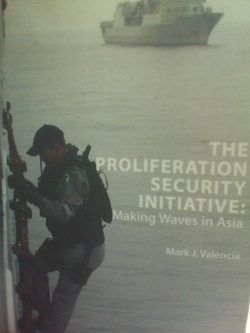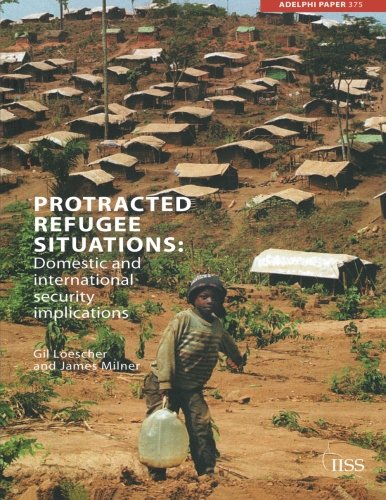Adelphi papers ; 375 The Proliferation Security Initiative: Making Waves in Asia (Adelphi series)

Buy online ($)
Type
Journal
Authors
ISBN 10
0415395127
ISBN 13
9780415395120
Category
325 POLITICAL SCIENCE-International Migration and clonization
[ Browse Items ]
Publication Year
2006
Publisher
Pages
93
Series Name
Description
The Proliferation Security Initiative (PSI), launched initiated by US President Bush in May 2003, was designed to prevent elements of weapons of mass destruction (WMD) from reaching or leaving states or sub-state actors of proliferation concern. More than twenty countries now adhere to PSI principles. Though the principal focus of the initiative is on North Korea, Japan and Singapore are the only active East Asian participants. Most WMD traffic moves by sea, and the focus of the PSI is on maritime interdictions and seizures. Although the PSI has had some significant successes, its aggressive promotion and implementation has been controversial. It has been criticised for lacking sufficient public accountability, stretching international law to the limits, undermining the UN system, potentially limited effectiveness and for being politically divisive. Moreover, Asian countries that are key to PSI's successful implementation - notably China, India, Indonesia and South Korea - have deferred active involvement despite US pressure The complexities of the post-Cold War security environment in East Asia make implementation of the PSI problematic. Against the background of China's rise, Japan's drive to become a 'normal' power and major-power competition for influence in Southeast Asia, maritime security issues are rising to the fore. Jurisdiction is creeping seawards while national threat perceptions as well as concepts of sovereignty are diverge, elevating maritime sensitivities. outh Korea - have deferred active involvement despite US pressure The complexities of the post-Cold War security environment in East Asia make implementation of the PSI problematic. Against the background of China's rise, Japan's drive to become a 'normal' power and major-power competition for influence in Southeast Asia, maritime security issues are rising to the fore. Jurisdiction is creeping seawards while national threat perceptions as well as concepts of sovereignty are diverge, elevating maritime sensitivities.
Biblio Notes
Table of Contents
Introduction .......................................................................................p. 7
Chapter 1 The Asian maritime security context ....................................p. 9
The rise of maritime security issues in Asia...................................p. 10
A clash of sovereignties ............................................................p. 12
'Creeping' jurisdiction ............................................................p. 14
Different threat perceptions ....................................................p. 18
Heightened maritime sensitivities ............................................p. 19
Chapter 2 The Proliferation Security Initiative .........................................p. 25
Origin and intent of the PSI .......................................................p. 25
Relevant specific incidents .........................................................p. 33
Chapter 3 Issues and options ................................................................p. 39
Issues ...................................................................................p. 39
Options and obstacles ............................................................p. 46
Chapter 4 PSI politics and the way forward .............................................p. 57
US rationale and longer-term strategy .........................................p. 57
PSI-related political issues ....................................................p. 60
Fundamental problems ............................................................p. 68
Conclusions ............................................................................p. 71
.
Number of Copies
1
| Library | Accession No | Call No | Copy No | Edition | Location | Availability |
|---|---|---|---|---|---|---|
| Main | 972 |
325.17 VAL |
1 | Yes |




